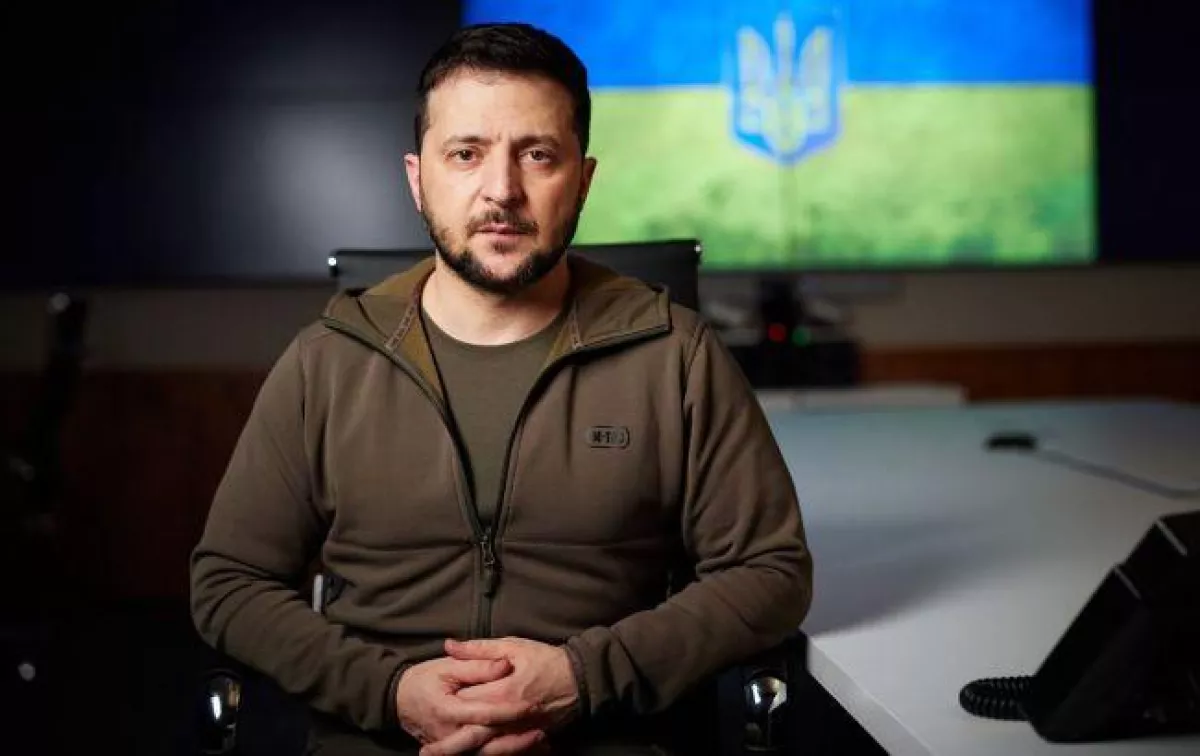EU leaders quiet as Trump and Putin discuss Ukraine peace A lot of noise and… nothing
How loudly Europe boasted, even rejecting any notion of negotiations on Ukraine "without Ukraine," while simultaneously pledging to help Ukrainians "as much as needed, until victory in the war with Russia is achieved." And suddenly, for the second day in a row, there are laments in Europe like: "The Munich Agreement is making a comeback to Europe."
Certainly, the situation becomes clearer in light of the recent phone negotiations between Donald Trump and Vladimir Putin, who began discussing the issue of halting hostilities between Russia and Ukraine. If Europe’s capitals, including Brussels, are now contemplating a "Munich Agreement"-like scenario — which some journalists are describing as "betraying Ukraine's interests," interests the European Union once unequivocally pledged to defend — then where are the strong diplomatic protests from those same promise-makers? Perhaps someone will confidently claim that such protests will emerge at the Munich Security Conference, which opens its doors on February 14 for politicians of various ranks. But what if, even there, these so-called Europeans choose not to protest, but instead march in unison, albeit in an entirely different direction? How should we then interpret the term "betrayal," which has gained so much traction in recent days? In contrast, yesterday, EU High Representative for Foreign Affairs Kaja Kallas ruled out the possibility of any agreement being "made behind our backs." In support of this, European Council President António Costa also stated "there will be no credible and successful negotiations, no lasting peace, without Ukraine and without the EU." So, what comes next after all this rhetorical flurry?

Well, European politicians are one thing, we’ve known where they stand for a long time. But where is the voice, so to speak, of the average European, who, according to EU leaders, has been supporting the continuation of the war between Russia and Ukraine day and night, perhaps with their own hands, feet, and other body parts? Why are they silent, especially since, over the past years, they have sacrificed their warmth, finances, social benefits, and peace "for Ukraine"? After all, according to repeated assurances from European media about the overwhelming support for military actions and anti-Russian sanctions for the past three years, they should have risen up and organized a new Internationale. But they didn’t. So it seems they were forced to go along with the "general line" of the EU, something Hungarian Prime Minister Viktor Orbán has been proclaiming all these years. But in reality, it turned out that no one even really mentioned what happened, and only a couple dozen people gathered on February 12 for something resembling a demonstration in front of Brussels’ Central Station. And even then, it was for a completely different reason, speaking out against the policy of the 47th President of the United States and calling for the "protection of democratic values in the United States." Just a couple of dozen, no more…
In any case, according to several analysts, by now, after the phone negotiations between the U.S. and Russian presidents, the outcome has clearly highlighted the fact of "the end of Putin's diplomatic isolation." Meanwhile, journalists of various stripes have used the term "shock" in reference to Trump’s post-commentary about the agreements between Washington and Moscow to "work together, very closely”, even to the point of visiting each other's countries. A shock that, naturally, has mostly shaken the Ukrainians.
Moreover, the discussion today is not so much about the fact itself, but rather about the figure of the American politician, Steve Witkoff, whom Trump seemingly entrusted with continuing the negotiations, although initially, the conversation was about the U.S. president’s special envoy for Ukraine and Russia, Keith Kellogg (the former being the White House’s special envoy for the Middle East).
Amid these developments, some information about the phone talks between Trump and Ukrainian President Volodymyr Zelenskyy slipped by unnoticed. Trump described them as "very positive," noting that the leader of Ukraine, like Putin, wants to make peace. Zelenskyy, for his part, confirmed that during the conversation, he expressed Ukraine’s desire "more than anyone," also adding that the discussion included potential U.S.-Ukrainian steps toward guaranteeing a reliable and lasting peace.

In this context, according to leading global news agencies, U.S. Defense Secretary Pete Hegseth declared that Washington "most likely" would not support the key points outlined by Kyiv for ending the conflict, including a return to pre-2014 borders and Ukraine's NATO membership. According to Hegseth, this is "unrealistic." In line with this, he also did not give a positive answer regarding the participation of American troops in any peacekeeping mission on Ukrainian territory after a peace agreement was reached, calling this idea "controversial."
It is quite telling that the last remark by the U.S. Secretary of Defense also went without immediate reaction from European leaders, who have long been pushing for a resolution on this issue. Interestingly, Hegseth tried to downplay the "revolutionary" changes occurring on the Russian-Ukrainian track, refusing to label them as "betrayal" in the context of the peace path proposed by Trump in the relationship between Moscow and Kyiv. He specifically emphasized the world's collective interest in achieving peace through negotiation, seemingly aligning with Trump’s words: "I just want people to stop being killed."
Thus, Europe continues to play the role of a silent bystander in this aspect, which, in one of the hot-commentary pieces, was titled "Trump forces Europeans to face a fait accompli." The focus is now on the platform where a potential meeting between the leaders of Russia and the U.S. could take place.
Perhaps the EU leaders will voice their position at the Munich Security Conference, but how loud and assertive will their stance be?








